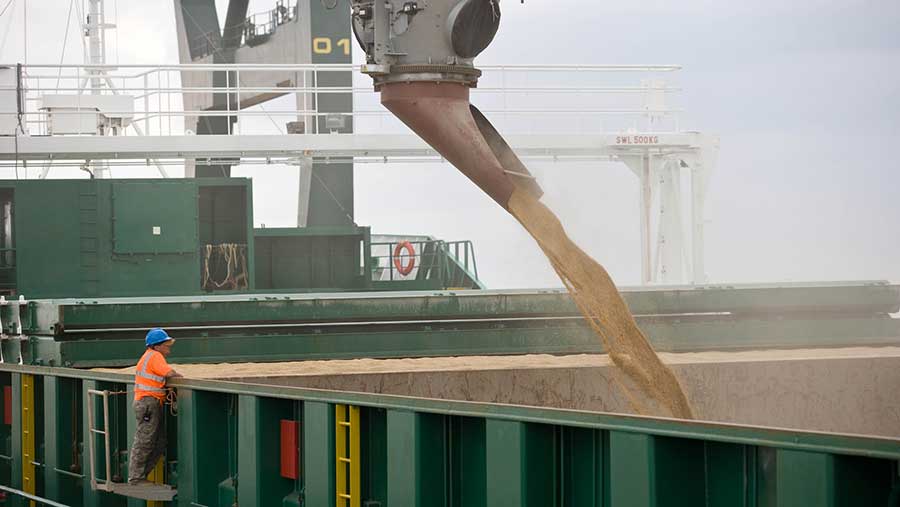Cereals 2017: Greater competitiveness needed before Brexit, says AHDB
 © Tim Scrivener
© Tim Scrivener Cereal producers, merchants and processors need to lift their competitiveness if the sector is to thrive post Brexit, according to the latest Horizon report from the AHDB.
Presenting the findings at Cereals 2017 on Wednesday (14 June), chief strategy officer Tom Hind said that, as a small-scale exporter and relatively high-cost producer, opportunities to compete in global feed grain markets will be limited and highly dependent on market conditions.
See also: Full coverage from Cereals 2017
Mr Hind said: “We started this piece of work with the intention of identifying where new market opportunities may lie.
“But as we delved deeper, it became more and more apparent that, while the demand is there, generally we are not in a situation to compete in global commodity grain markets.
“There are niches to exploit, but getting fit to compete in our own market has to be the priority.”
Recommendations
With ongoing uncertainty about the economic sustainability of UK arable production, the AHDB makes five key recommendations:
- Improve competitiveness, which is the best form of protection
- Drive productivity
- Businesses in the same supply chain can’t exist in isolation
- Improve consistency of UK grain quality
- Get to grips with potential grain and product niches at home and abroad.
“Uncertainty around the detail of Brexit is no excuse for inertia,” said Mr Hind.
“We need to start discussing what the cereals supply chain will look like in the longer term, from what we put in the ground to what leaves the port and what people want on their plates.
“Ultimately, every individual business needs to ask these questions and adapt their business and investment strategies to the coming change.”
Cost management
Lead analyst Jack Watts, who co-authored the report, is also urging producers to look at some key resilience-building steps businesses should take ahead of Brexit.
“Relentless cost management is a key part of building competitiveness – not simply cutting costs.
“AHDB can help farmers focus on competitiveness through peer-to-peer discussion and learning, facilitated by the Monitor Farm network and FarmBench benchmarking tool.”
Allan Wilkinson, head of agrifoods for bank HSBC, is also urging a more collaborative approach.
“It is whole supply chains that compete for ultimate consumer demand rather than individuals looking to make a fast buck out of their customers or suppliers,” he said.
For more on the AHDB Horizon report on cereals and Brexit, see this week’s Farmers Weekly out on Friday (16 June), or download the full report from the AHDB website.
